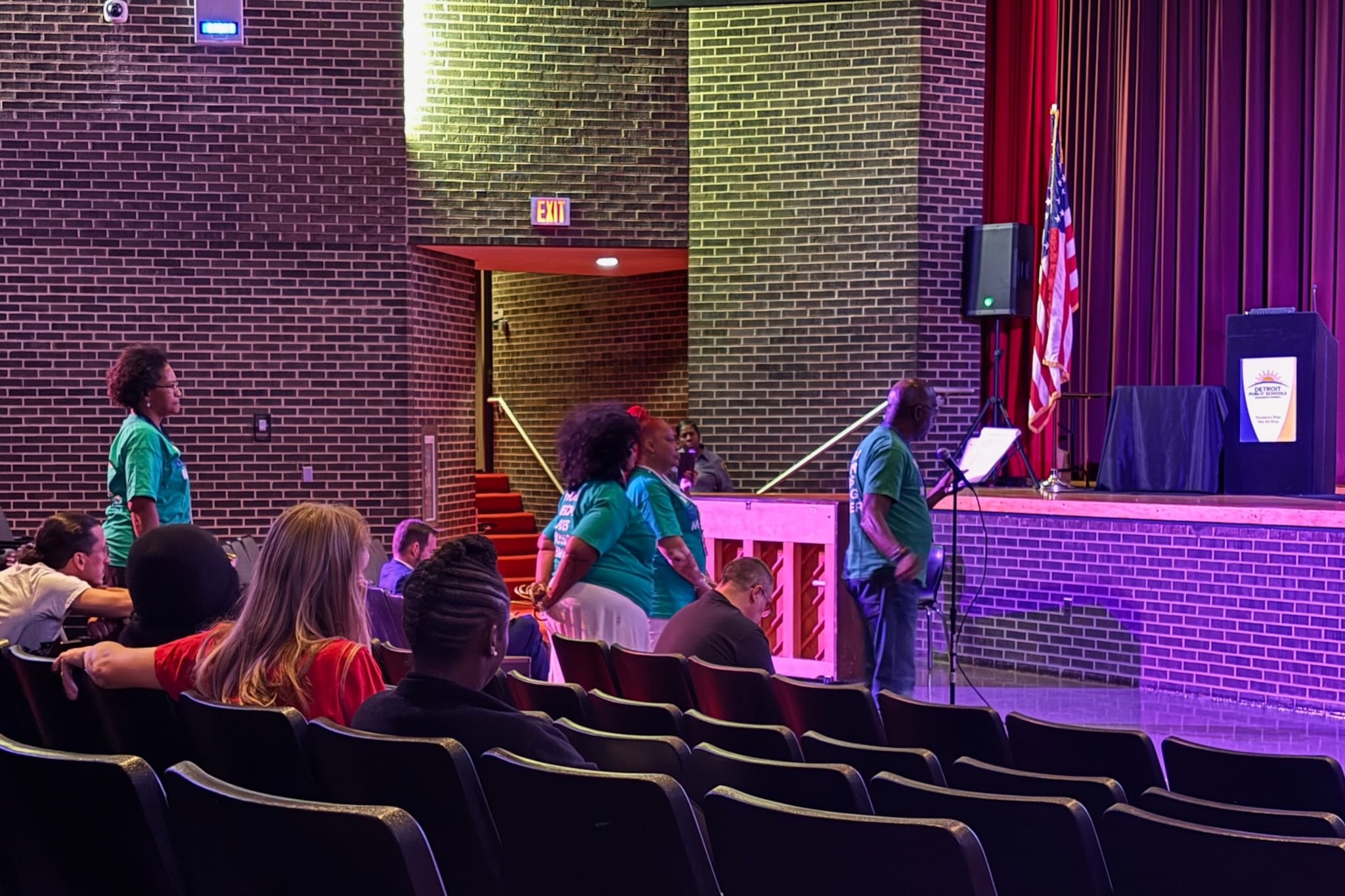Sign up for Chalkbeat Detroit’s free daily newsletter to keep up with the city’s public school system and Michigan education policy.
The Detroit school board once again delayed voting on changes to the board’s public comment policy Tuesday evening to give the board time to educate the community about the proposed changes.
The new policy would eliminate virtual public comment, which started in 2020 during COVID-19 lockdowns, formally allow exceptions to the three-minute comment time limit for commenters with disabilities or in need of translation, and introduce a new process of registering to comment, among other changes.
The board originally delayed voting during its Nov. 12 meeting to give the public more time to review the policy changes. The new policy was on its second reading Tuesday, but board President Angelique Peterson-Mayberry said the board would not vote on the policy until it has engaged in community education about what the policy changes would mean for meeting participants.
Eliminating virtual comment raises questions
If the board passes new policy changes, virtual public comment will be eliminated. The proposal stems from concern that participants could sign in on several devices under different names to make more than one comment.
“Right now, it’s just really difficult to ensure that it is living up to the spirit of public comment for everyone in the community,” board member and policy committee chair Misha Stallworth West told Chalkbeat in November.
But some worry changes in the policy, especially eliminating virtual public comment, will make it harder to make comments to the board.
Emma Howland-Bolton, a fourth grade teacher from Thirkell Elementary-Middle School, said the virtual public comment format is already a frustrating process. The board streams meetings virtually on YouTube, but virtual commenters must join a Zoom meeting to raise their hand and request to make public comments. Other school districts, she said, have a more user-friendly process.
“Rather than limiting public comment, I hope that you guys will work to expand it so we can join the rest of the school boards in Michigan with having actually accessible virtual and in-person public comment,” Howland-Bolton said.
Tabrian Joe, who ran for school board in the 2024 election and commented on the policy changes during the Nov. 12 meeting, urged the board Tuesday to table the vote until new members Monique Bryant and Ida Simmons Short enter office in January 2025.
Lauren Chapman, a virtual public commenter who pushed the board to include pools in its site plans for Pershing and Cody high schools, emphasized the importance of virtual public comment.
“I’m currently on military orders, thus underscoring the importance of having virtual options,” Chapman told the board over Zoom.
How might public comment change?
Some new features of the proposed policy codify existing practices into official policy, while others introduce — or take away — existing aspects of public comment.
Stallworth West, whose eight-year term ends this month, told Chalkbeat that the proposed policy “helps to ensure there’s not confusion between the board and the public around what’s happening and how it happens.”
Here are some other key changes:
- Commenters will register using a “action agenda item” or “non-action agenda item” comment form available at the meeting entrance.
- Public comment period will be limited to one hour unless the board votes to extend it.
- Speakers can’t yield any of their speaking time to another speaker. This has been current practice, but hasn’t stopped commenters from requesting that their time be yielded.
- Attendants can distribute documents, handouts, or leaflets at the entrance door of the meeting, but cannot distribute materials in the meeting room.
- Audience members will be discouraged from clapping, applauding, heckling, and verbal outbursts.
Alex Klaus is a freelance reporter for Chalkbeat Detroit. You can reach her at alexrklaus@gmail.com.





